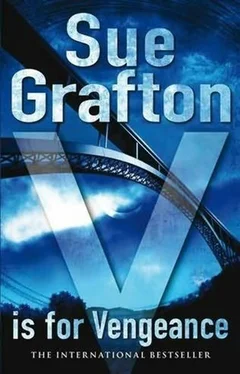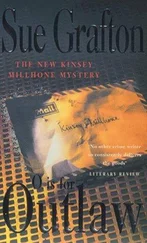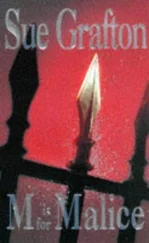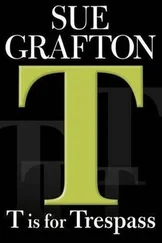She slid dress after dress aside, working her way down the line. When she found the white strapless Gucci, she removed it, still on its hanger, and inspected it carefully. Some of the beading had come loose, crystals and sequins missing, and there was now a tiny split in the seam where Thelma’s fat ass had stressed the threads until they popped. She held the fabric to her nose, picking up the lingering musk of Thelma’s perspiration. Of course, she’d been nervous. She’d co-opted Nora’s husband. She’d helped herself to Nora’s clothes, her jewelry, and anything else she fancied. Thelma was impersonating a woman of class, and she’d gone through a major bout of flop sweat because she knew what a fake she was. For the first time, Nora felt rage and she leveled it at Channing. How had he tolerated this trollop, this corpulent interloper, stepping into her shoes?
She returned the Gucci to the hanging rod. She could see now that Thelma had been trying on a number of her cocktail dresses, perhaps debating which of them to wear that night. Two she’d rejected, tossing them over the back of the velvet slipper chair. She must have realized she had no prayer of squeezing into the 4’s. Instead, she pulled out Nora’s three Hararis, one of which she hadn’t yet had occasion to wear. Nora could picture the scene. While Thelma pondered her choices, she’d hung them on the retractable caddy Nora used for clothes when they first came back from the dry cleaners. The Hararis were more forgiving than the more form-fitting of Nora’s clothes, diaphanous layers of silk, in pale smoky blues and coffee tones, overlaid with gray. Each ensemble consisted of multiple pieces: a body slip, a vest that flowed from the shoulder to an irregular hem below. The separates were interchangeable, meant to be worn in varied combinations. There was something sensuous about the way the fabric settled against the skin, transparent in places so that the body was both disguised and revealed. Maybe Thelma thought her sagging, cellulite-ridden arm flaps would look especially fetching in such a getup.
Nora removed six hangers from the rod and folded the dresses across her left arm. She removed another handful and laid them on top of the first. She carried them downstairs and out to the car, loading first the trunk and then the backseat. The gowns were surprisingly heavy, well constructed, many of them so densely embellished with crystals and beads that the weight of them was palpable. It took her six trips before she’d successfully stripped her closet of all her evening wear: full-length gowns, cocktail dresses, the entire collection of haute couture fashions in every shape and size. The provenance didn’t matter. Nora removed every garment that might have been at all suitable for the dinner dance that night.
It cheered her enormously to imagine the sequence of events. Thelma and Channing would leave the office early, maybe 5:00 instead of the usual 7:00 P.M. The drive home would take an hour or more at the height of the rush hour traffic, which would be particularly heavy along Pacific Coast Highway. By the time they arrived at the house, it would be 6:00 or 6:30, and all the nearby dress shops would be closed. Maybe they’d have a drink before getting dressed. Maybe they’d make love and then take a shower together. Eventually Thelma would turn her porcine attention to what she’d be wearing that night. Buoyed at the prospects, she’d fling open the double doors to the closet. Right away, she’d realize something was wrong. Baffled, she’d open the climate-controlled closet-within-a-closet, which was virtually empty. Thelma, the buxom, lumbering, pot-bellied slob, would find herself with nothing to wear. Not a stitch. She’d shriek and Channing would come running, but what could either of them do? He’d be as horrified as she was. Someone had entered the house and walked off with thousands and thousands of dollars’ worth of formal wear. What would he tell Nora? And how would he appease the wailing Thelma, whose evening was ruined? Her crappy little condominium was in Inglewood, thirty miles southeast, not far from the Los Angeles International Airport, so even if (by some miracle) she had something adequate at home, she’d never make it in time. The dinner dance was being held at the Millennium Bilt-more in downtown L.A., forty-nine miles away, distances it would be hopeless to navigate at that hour.
Nora would have given anything to see the look on Thelma’s face. Neither she nor Channing could lay the issue at Nora’s feet even if they figured it out. What would they chide her for? Removing her own clothes from the premises to prevent Thelma from squeezing her way into them the way she’d squeezed her way into the rest of Nora’s life?
Nora locked the house and went out to the car. She looked at the clock on the dashboard, noting that it was only 3:56. The traffic north to Montebello might be slow, but she’d be home by 7:00 at the very latest. Plenty of time to dress and meet Belinda and her sister at the concert hall. How perfect was that?
Once Marvin left, I set up a file for Audrey Vance. Ordinarily, I’d have had Marvin sign a boilerplate contract, specifying what he’d hired me to do and agreeing to my rates. In this matter, we were operating on a handshake and my assignment was open-ended. He wrote me a check for fifteen hundred dollars as a retainer, against which I’d bill. If my charges exceeded the total, he had the option of authorizing additional expenses. Much would depend on how effective I’d been. I made a copy of his check, tucked it in the file folder, and set the check itself aside to be deposited.
In essence, I was doing a background investigation on a dead woman. In terms of our attitudes, he and I were at odds. I thought he was in denial, resisting the truth about Audrey when it didn’t tally with his hopes. I had my suspicions, but I understood his hanging on to his belief in her innocence. He didn’t want to think he’d been played for a fool. I was convinced she was a professional crook and he’d been duped. I simply hadn’t proved it yet. At the same time, I was irritated with him for being too stubborn to admit he’d fallen in love with a skunk. I’ve done the same thing myself, so if you want to consider the underlying motivation, you might say I was acting in his behalf as a way of taking care of myself. Psychobabble 101. In the past, when I was embroiled with rogues, I’d been as blind as he was and just as intractable. Here, I had a chance to take action instead of sitting around in a stew of misery. Anger is about power. Tears are about weakness. Guess which category I prefer?
I put a call through to Cheney Phillips at the STPD. Cheney was a fabulous resource and usually generous with information. I thought I’d start with him and work forward from there. Lieutenant Becker picked up the call and told me Cheney’d just gone out for lunch. Lunch? I checked my watch, trying to figure out where the morning had gone. It was clear I’d have to go hunting for him. I knew his favorite haunts-three restaurants in a four-block radius, within walking distance of the police department. Since my office was in the area, the trek couldn’t have been easier. I tried the Bistro first, the closest of the three eateries. I struck out there and struck out again at the Sundial Café. My efforts finally paid off at the Palm Garden, which was located in a downtown arcade, replete with art galleries and jewelry stores, leather shops, high-end luggage and travel goods, along with a boutique that sold trendy clothing made of hemp. The palm trees, for which the restaurant was named, survived in large square gray boxes, responding to their cramped conditions by sending out air roots that crept over the edges like worms. Really appetizing if you were sitting next to one.
Читать дальше












